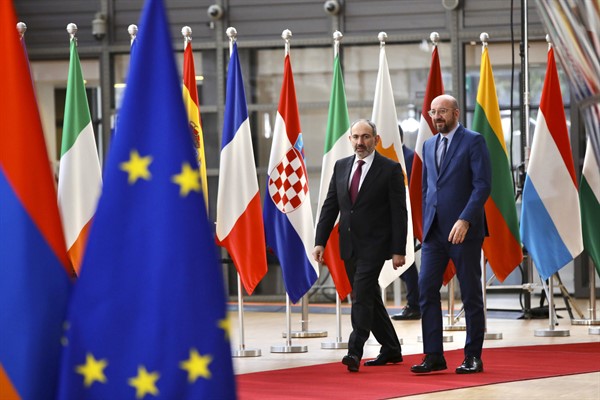After nearly two years of intermittent border skirmishes and protracted diplomatic talks, Armenia and Azerbaijan are edging closer to reaching a definitive peace agreement to their decades-long dispute over the Nagorno-Karabakh region. Significant hurdles still exist, but the Armenian perspective on Nagorno-Karabakh since the end of the 2020 war over the breakaway Azerbaijani province has undergone significant changes, reflecting the altered geopolitical balance of power in the region.
The first concrete evidence of the progress in peace negotiations came in March 2022, when Azerbaijan presented a framework for normalizing bilateral relations. This includes establishing diplomatic relations, opening transport routes, mutually recognizing territorial integrity and, most important of all, acknowledging the absence of territorial claims on either side. Border delimitation and demarcation—a troubling issue between the two historical rivals—was another component of the proposed peace plan.
Surprisingly, Armenia did not summarily reject Baku’s proposals. Instead, in responding to the plan, Armenian Foreign Minister Ararat Mirzoyan stated that for Yerevan, “the Nagorno-Karabakh conflict is not a territorial issue,” but rather a matter of protecting the rights of ethnic Armenian inhabitants of the region, thereby marking a significant shift in Yerevan’s decades-long rhetoric. The First Nagorno-Karabakh War following the breakup of the Soviet Union ended in the early 1990s with Armenia victorious and in control not only of Nagorno-Karabakh but also significant amounts of Azerbaijani territory around it. Ever since then, Yerevan challenged Azerbaijan’s territorial sovereignty over Nagorno-Karabakh and pushed for international recognition of the separatist region’s independence.

